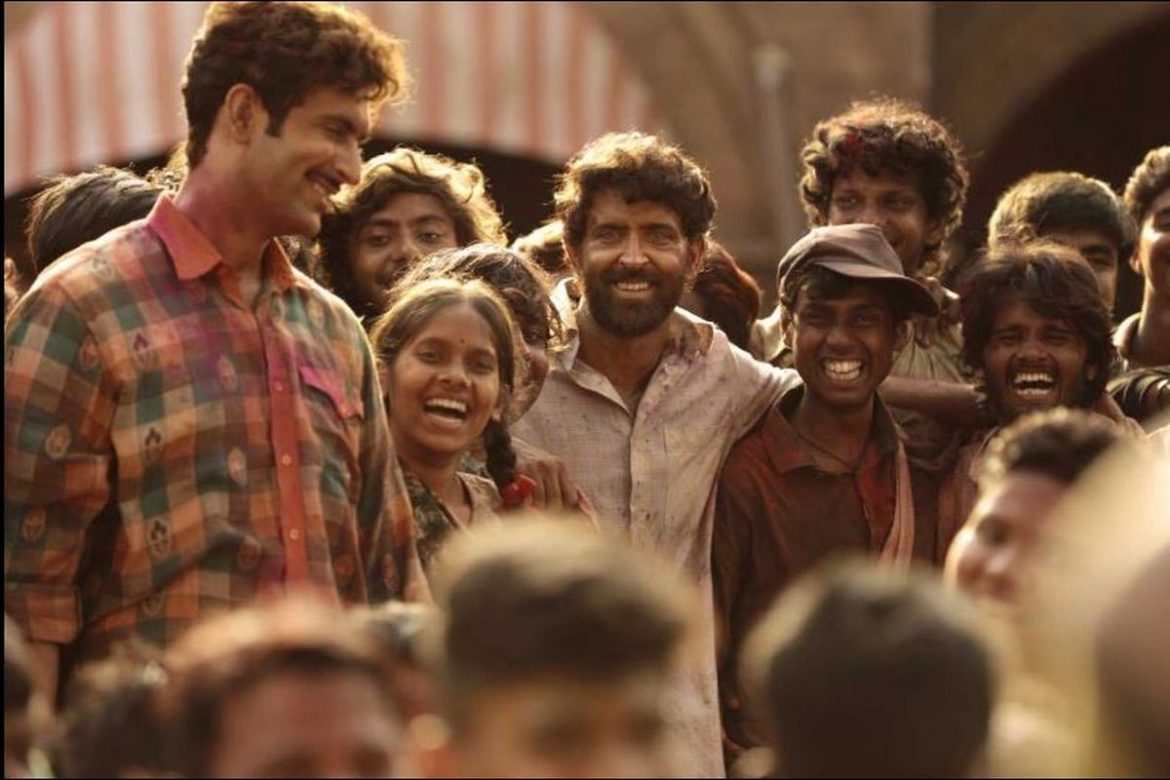Teacher’s Pets:
**1/2
The key line in Super 30, repeated often, is that the time when only a king’s son could become king has passed, now only the deserving gets to be king. Then, Vikas Bahl casts—or rather miscasts—industry kid Hrithik Roshan as Patna’s famous educationist, Anand Kumar. Let’s also remember, that the director caught in a #MeToo storm, was conveniently exonerated just in time for his name to appear in the credits of this film.
What Anand Kumar has achieved is undoubtedly remarkable, and there must have been enough material to make a classic underdog-wins film, so why the embellishments (including a kathak-dancing girlfriend—Mrunal Thakur) that actually detract from the story.
Anand is a brilliant mathematician, who manages to get an invitation to Cambridge, no less, but his poor father, a postman (the excellent Virendra Saxena), cannot raise the required funds. Anand and his brother Pranav (Nandish Sandhu, way more convincing in the role), sell papads their mother (Sadhana Singh) makes to make ends meet. Then, the ambitious Lallan (Aditya Shrivastava) recruits him to teach at his coaching institute for IIT-JEE aspirants. Anand becomes a star teacher, and money follows.
The clownish education minister (Pankaj Tripathi), who is in cahoots with Lallan to make big money out of rich kids, openly calls it the “education mafia” and is miffed when Anand quits to start his own class for underprivileged children, and even more enraged when a fancy-dress journalist (a very hammy Amit Sadh) writes about it.
Anand’s rag-tag bunch of boys and some girls land up– he admits just 30– for his class in a ramshackle building, where they stay and study to prepare for the exams. The kids come from extremely impoverished backgrounds, some from distant villages, where even one square meal a day is not available, but they have the means to complete the mandatory twelfth standard in science to be eligible to appear for the IIT-entrance exam, and have NASA goals?
The ‘mafia’ tries everything from threats, to a sexual harassment complaint (treated as comedy, meant to mock women who speak up), to actually sending hitmen to shoot Anand. The students use his lessons to fight off a bunch of armed goons. In reality Anand Kumar coaches paying students and helps the poor kids alongside. He is already a real-life hero, was it necessary to put in so much melodrama?
Bahl shifts from realism in terms of locations, dialect and costumes, to fanciful fictional additions—like that ghastly Basanti No Dance song, meant to make the students get over their inferiority complex.
A film about education, with no mention of caste, reservations, rote learning or even questioning why IIT is seen as the only way to prosperity? The story is narrated by a former student (Vijay Varma), who stands before an audience of foreigners (in a scene reminiscent of Padman), and tells them why almost all the heads of major corporations in the world are Indian.
Of course, the film has its moving and inspiring scenes and a powerful one, in which a hospital ward boy mocks a clueless doctor as “donation-wala” (like the reserved seat students are taunted as quota-walas). But the raja ka beta vs haqdaar question—how many of the thirty young actors– all dark-skinned—will get a second mainstream Bollywood film? Just wondering.

